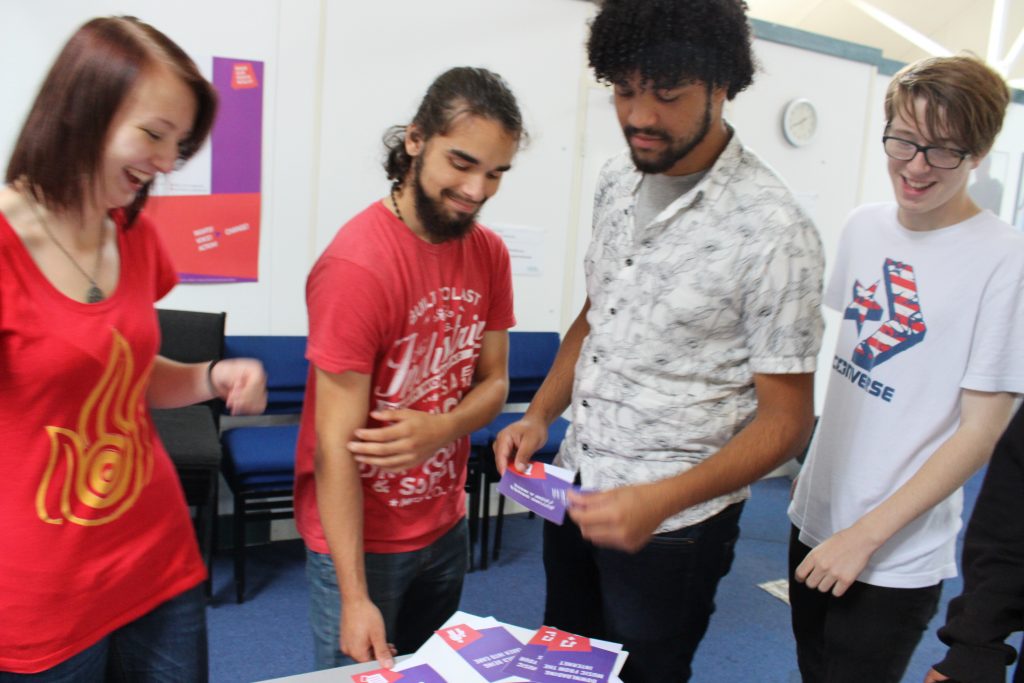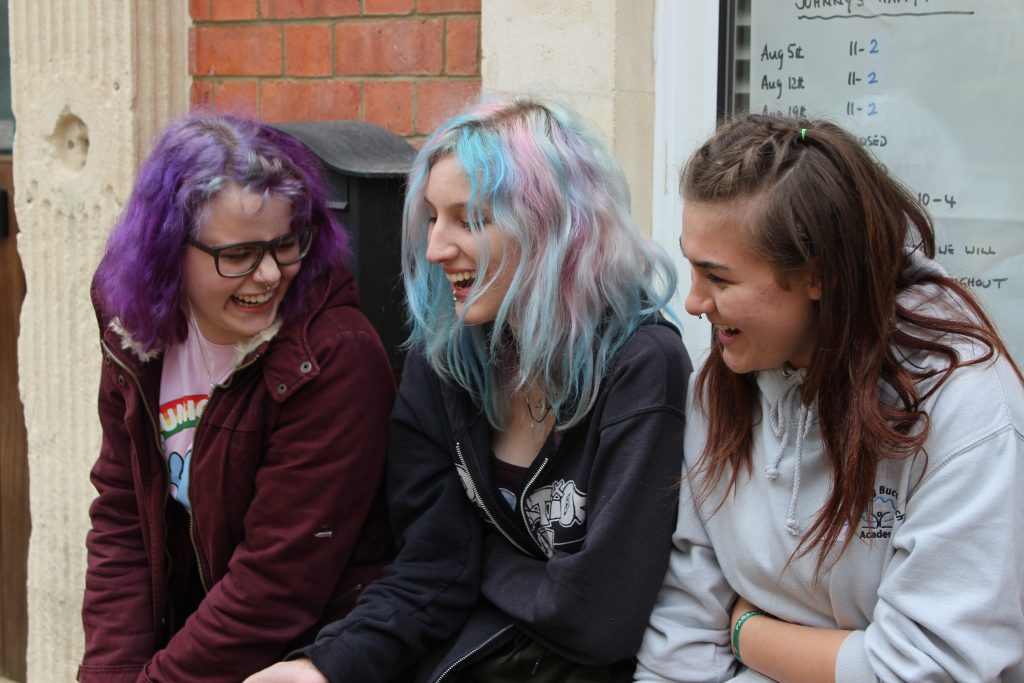In the face of government bids to ‘transform mental health for young people’, a national network of ‘Rights Advocates’ is calling for decision-makers to respect #MyRightsMyMind, by putting their human rights at the centre of the system, explains Kahra Wayland-Larty, Senior Policy Officer at Youth Access.
From year-long waiting lists, to the no man’s land between children’s and adult’s care – young people are facing the sharp edge of the mental health ‘crisis’. Despite 75% of mental health problems presenting by age 25, evidence points to a widening ‘treatment gap’ and government plans, set out in a recent green paper, points to 2 in 3 young people still going without the mental health support they need.
It’s not good enough and young people know it.
Natalie, a steering group member for Make Our Rights Reality, a programme coordinated by Youth Access, to educate and empower young people to use their rights as a tool to challenge everyday injustice, outlines her experience.
“After struggling to get counselling through Child and Adolescent Mental Health Services (CAMHS), then a couple of really difficult counselling sessions, my therapist basically disappeared. By the time they found someone else I was too old for CAMHS and adult services wouldn’t take me till I was 18.
“Luckily I was also in touch with a local youth counselling service – who have been amazing,” she says.
The Make Our Rights Reality programme comprises a rights training course, supported social action projects and this national youth-led campaign for a rights-based approach to youth mental health.
The Lightbulb Moment
 Young people getting rights training with Make Our Rights Reality Credit: Youth Access
Young people getting rights training with Make Our Rights Reality Credit: Youth Access
“The thing is that mental healthcare shouldn’t be about luck, it’s about whether someone is struggling and needs support. Imagine if someone had to wait eight months to see a dentist or to get cancer treatment. There would be outrage.” Jawwad, Make Our Rights Reality steering group.
Anti-stigma campaigns have helped to build an articulate generation when it comes to mental health. But with many empowered to “speak out” about their struggles, there’s a bubbling frustration at the lack of support available. A cup of tea and a chinwag works for some, but many young people need more than that. And actually, they are entitled to it.
The UK has ratified several human rights covenants, which oblige it to pursue “the highest attainable standard of health” for its citizens – including mental health – according to a set of principles based on equality and dignity.
A Rights-based Approach
 #MyRightsMyMind will be led by young people in their local areas Credit: Youth Access
#MyRightsMyMind will be led by young people in their local areas Credit: Youth Access
It’s time decision-makers had their own lightbulb moment. The #MyRightsMyMind petition calls on politicians, commissioners, even service providers to take a step back from hollow targets, tickboxes and bureaucracy to really ask themselves “what is the mental health system for?”.
We want them to pledge to take a rights-based approach to youth mental healthcare. When we shift focus to meeting young people’s rights – instead of the system’s needs – it’s obvious more needs to be done than simply funnelling money into already overburdened services.
Our rights mean that services should be accessible. For many young people, this means being able to drop in and get support when they need it, on their terms – not having to wait until crisis point, not having to travel miles away from home, not even having to ask a parent for a lift if they don’t want to.
Services also need to be equally accessible, without discrimination.
Services also need to be equally accessible, without discrimination. We need a step change to make sure 16 to 25 year-olds are just as well catered for as other age groups.
That brings us onto the principle of acceptability. A rights-based mental health system should respect the needs of different cultures, communities, and crucially, of different age groups.
We know that “adulthood” isn’t simply ‘achieved’ on your 18th birthday. And yet, the statutory mental health system draws this arbitrary line between children’s and adults services.
Just like neonates, infants and geriatrics, young people need – and have the right to – services designed to meet their specific needs: with professionals who are trained to work with them and services that understand the specific life challenges they are facing.
Who is more expert on the mental health crisis than the people living it?
Then there’s participation. Young people have the right to be seen as equal partners in decisions that concern them – not just in clinical settings, but in wider policy-making and commissioning. After all, who is more expert on the mental health crisis than the people living it?
“The most effective way to achieve the solution to this problem is to hear the voice of those directly affected, the youth. The Make Our Rights Reality campaign is incredible because it is the voice of us, the young people, the experts of our time,” S, Rights Advocate with Make Our Rights Reality
“This campaign means more to me than I can even put into words… I don’t have to standby as my friends are told their issues aren’t real. I don’t have to remain complacent as a system built to support me belittles me instead. Finally I have a voice, a voice for myself, and for those who remain unheard,” anonymous, Rights Advocate, Make Our Rights Reality.
Join young people taking a stand for #MyRightsMyMind, by signing the petition calling on decision-makers to take a rights-based approach to mental healthcare.
Featured image: #MyRightsMyMind will be led by young people in their local areas
Credit: Youth Access






